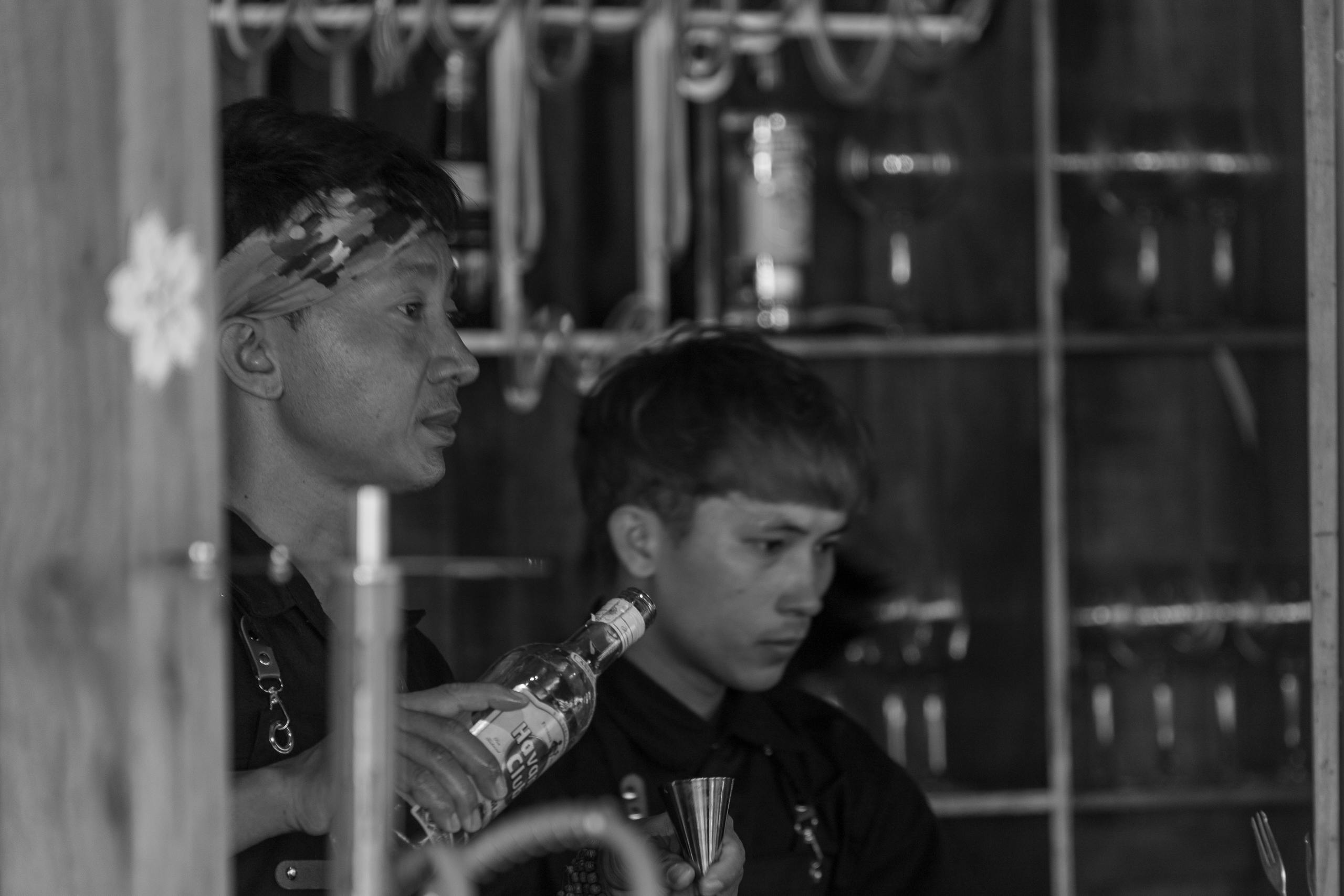Distilling alcohol is a centuries-old tradition used to create consumable spirits such as whiskey, vodka, and rum. It can be a complex process, but with the right knowledge and equipment it can be done legally. This guide will provide an overview of the steps needed to distill alcohol legally and safely.Understanding the legal requirements for distilling alcohol can be a complicated process. In the United States, federal laws and regulations govern the production of alcohol, including distilling alcohol. Additionally, each state may have their own unique laws and regulations on the production of alcohol. It is essential to research and understand all applicable state and federal laws before beginning the process of distilling alcohol.
At the federal level, anyone wishing to produce or distribute distilled spirits must obtain a permit from the Alcohol and Tobacco Tax and Trade Bureau (TTB). This permit requires a detailed application to be submitted along with any required fees. Additionally, producers must meet certain requirements such as age restrictions, security measures, taxation documents, labeling processes and reporting procedures.
In addition to federal regulations, each state has its own set of requirements for distilling alcohol that must be followed in order to produce or distribute spirits legally within that state. These requirements can vary widely from state-to-state so it is important to research the specific regulations in your area. Some states may require additional permits or licensing for those who wish to produce distilled spirits within their borders while others may have more relaxed regulations.
Understanding all of the legal requirements for producing distilled spirits is
Obtaining a Distilled Spirits Permit
Obtaining a distilled spirits permit is the process of securing a license to manufacture, import, export, or sell distilled spirits. The process for obtaining a permit can vary from state to state, so it is important to understand the regulations in your particular jurisdiction. Depending on your purpose and location, obtaining a distilled spirits permit may require you to complete certain forms and pay applicable fees. In some cases, you may also need to undergo an examination or other training to obtain the necessary license.
In order to obtain a distilled spirits permit, it is important to first understand the regulations regarding such permits in your jurisdiction. Many states have special requirements that must be met in order for an individual or business to obtain a distilled spirits permit. It is also important to note that there may be special requirements in certain local jurisdictions as well.
Once you have identified the requirements necessary for obtaining a distilled spirits permit in your jurisdiction, you can begin the application process. This typically involves submitting an application form along with any required supporting documents and paying any applicable fees. Depending on your purpose and location, there may also be additional requirements such as taking an examination or
Applying for a Federal Basic Permit
Applying for a federal basic permit can be a complicated process. Depending on the type of business you are operating or the activities you intend to conduct, there may be different regulations and permits that you must adhere to. To ensure that your business complies with all applicable regulations, it is important to understand the process of applying for a federal basic permit.
The first step in applying for a federal basic permit is to determine what type of activities or operations you will need the permit for. Different types of activities may require different types of permits, so it is important to research what type of permit is required for your specific activity or operation. Once you have determined what type of permit is needed, it is time to begin the application process.
Depending on the type of activity or operation, there may be additional requirements that must be met in order to obtain a federal basic permit. For example, if you are applying for a permit to operate an animal facility, there may be additional requirements such as submitting documentation regarding safety measures and other applicable regulations. It is important to thoroughly read and understand any additional requirements before submitting your application.
Applying for a State Permit
Applying for a state permit can be an intimidating process. Depending on the type of permit, you may need to complete an application, provide supporting documents, and attend a hearing. Before applying, it is important to understand the requirements and determine if you are eligible for the permit.
The first step in applying for a state permit is to find out what type of permit you need. Different states have different regulations and requirements, so it is important to research your particular state’s requirements before submitting your application. Once you know what kind of permit you need, it is time to start gathering the necessary documents and completing the application.
Depending on the type of permit you are applying for, you may need to provide supporting documents such as letters of recommendation or financial statements. You should also make sure that all of your information is accurate and up-to-date before submitting your application. After completing the application and submitting all required documents, you may need to attend a hearing or other type of review process.
After attending the hearing or review process,
Acquiring Equipment and Supplies for Distilling Alcohol
Distilling alcohol at home requires some special equipment and supplies. The most important items to have on hand are a still, fermenter, hydrometer, thermometer, and safety equipment. A still is the apparatus used to distill the alcohol from the fermented liquid. A fermenter is a large container where the fermentation process takes place. A hydrometer is used to measure the specific gravity of the liquid before and after fermentation. A thermometer is needed to measure the temperature during fermentation, as well as during distillation. Finally, safety equipment such as goggles and gloves should be worn during distillation to protect against any potential hazards associated with working with hot liquids or airborne vapors.
In addition to these essential items, there are several other pieces of equipment that can make distilling easier and more efficient. An airlock allows CO2 vapors created during fermentation to escape without allowing air inside the fermenter; this helps prevent spoilage of the liquid. An auto-siphon can be used for racking (transferring) liquids from one container to another without introducing oxygen into the system; this

Learning About the Distillation Process
Distillation is a process by which a liquid mixture is separated into its component parts. This can be done through a variety of methods, such as evaporation, fractional distillation, and steam distillation. The process of distillation involves boiling the mixture, allowing the vapors to separate into different components based on their individual boiling points. The resulting liquid components are then collected and cooled to provide the desired product. Distillation can be used to separate mixtures of liquids with different boiling points, such as water and ethanol. It can also be used to purify liquids by removing impurities or contaminants that may have been present in the original mixture.
The process of distillation is used in many industries, including those dealing with food and beverage production, medicine, oil refining, and perfumery. It is also used in home brewing and winemaking to create spirits such as whiskey and brandy. Distilling alcohol at home is illegal in many countries; however, some countries do allow it under certain conditions. The process of distillation has been around since ancient times and has been used in various ways throughout
Taking Safety Precautions When Distilling Alcohol
Distilling alcohol can be a dangerous process if not done properly. It is important to take safety precautions to ensure the safety of everyone involved. To start, make sure all equipment is properly cleaned and disinfected before use. This will prevent any contamination that could lead to illness or injury. Additionally, wear protective gear such as gloves and eye protection when handling the distilling equipment. This will protect you from any splashes of liquid or steam that could cause burns or other injuries.
Next, only use high-proof alcohol for distillation. Low-proof alcohol can easily ignite and cause an explosion, as it has more flammable compounds present in it than higher-proof alcohols. Always be aware of your surroundings when distilling and make sure there are no open flames nearby. It is also important to keep the area well ventilated in case of any fumes or vapors.
Lastly, never leave a distillation setup unattended while running. Make sure someone is around to monitor the process at all times and shut off the power in case of an emergency. Additionally, never taste or consume the distilled product
Keeping Accurate Records of Alcohol Production and Sale
The production and sale of alcohol is a highly regulated industry. It is essential that all producers, sellers, distributors and retailers keep accurate records of their activities. Keeping accurate records helps to ensure that all legal requirements are met and that the proper taxes are paid. It also helps to protect businesses from potential liability issues.
Accurate records must be kept for all aspects of alcohol production and sale, including the purchase and sale of raw materials, the manufacture of products, storage, transportation and sales. Records must include the date, type of product, quantity produced or sold, price paid or received, customer information and payment method. All financial transactions related to alcohol must be documented as well. This includes payments made for licensing fees, taxes and other fees associated with the production or sale of alcohol.
Companies should also keep records of any employee training related to alcohol production or sales. This includes training on topics such as responsible service practices and health hazards associated with alcohol consumption. These records should include dates of training sessions as well as any notes taken by employees during the sessions.
Companies should also

Conclusion
The process of distilling alcohol is complex and requires a lot of knowledge and equipment to do it safely and legally. There are rules and regulations that must be followed when distilling alcohol, as well as state and federal laws that may apply. It is important to research the laws in your area before attempting to distill alcohol. Additionally, it is essential to obtain any necessary permits or licenses before engaging in the activity.
Ultimately, distilled spirits can be a great addition to many occasions, from camping trips to home-brewed beer tastings. With the proper knowledge and equipment, anyone can distill alcohol legally. However, it is important to remember that proper safety procedures must be followed in order to ensure a safe experience for everyone involved.
In conclusion, distilling alcohol can be an enjoyable hobby or business venture if done safely and legally. It is important for those interested in distilling alcohol to research all applicable laws in their area before getting started. With the proper knowledge and equipment, anyone can safely and legally make distilled spirits for personal consumption or for sale on the market.

